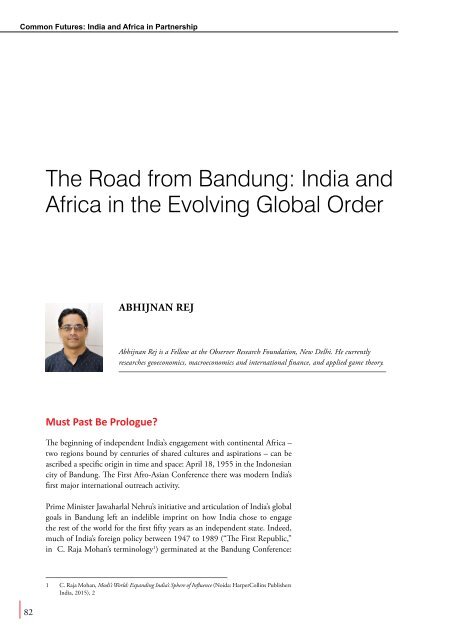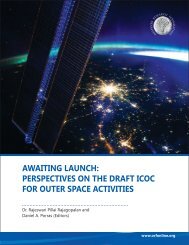Common Futures
II3UUw
II3UUw
Create successful ePaper yourself
Turn your PDF publications into a flip-book with our unique Google optimized e-Paper software.
<strong>Common</strong> <strong>Futures</strong>: India and Africa in Partnership<br />
The Road from Bandung: India and<br />
Africa in the Evolving Global Order<br />
Abhijnan Rej<br />
Abhijnan Rej is a Fellow at the Observer Research Foundation, New Delhi. He currently<br />
researches geoeconomics, macroeconomics and international finance, and applied game theory.<br />
Must Past Be Prologue?<br />
The beginning of independent India’s engagement with continental Africa –<br />
two regions bound by centuries of shared cultures and aspirations – can be<br />
ascribed a specific origin in time and space: April 18, 1955 in the Indonesian<br />
city of Bandung. The First Afro-Asian Conference there was modern India’s<br />
first major international outreach activity.<br />
Prime Minister Jawaharlal Nehru’s initiative and articulation of India’s global<br />
goals in Bandung left an indelible imprint on how India chose to engage<br />
the rest of the world for the first fifty years as an independent state. Indeed,<br />
much of India’s foreign policy between 1947 to 1989 (“The First Republic,”<br />
in C. Raja Mohan’s terminology 1 ) germinated at the Bandung Conference:<br />
82<br />
1 C. Raja Mohan, Modi’s World: Expanding India’s Sphere of Influence (Noida: HarperCollins Publishers<br />
India, 2015), 2








